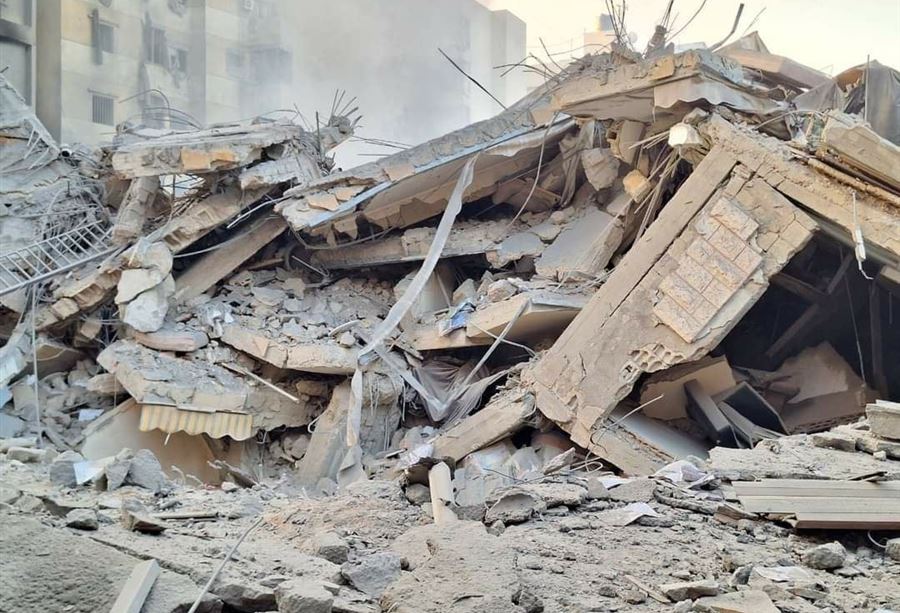لا وقف لإطلاق النار قريبًا… التفاوض في بداياته وأبعاد إقليمية تزيد التعقيد
أعرب رئيس مجلس النواب نبيه بري عن تفاؤل مشوب بالحذر إزاء إمكانية تحقيق وقف لإطلاق النار خلال الأيام أو الأسابيع المقبلة، مشيرًا إلى أن النجاح في هذه المساعي يعتمد على عدم ظهور مستجدات طارئة قد تؤدي إلى تصعيد إضافي.
لكن في المقابل، يعتقد محللون سياسيون أن الأوضاع أكثر تعقيدًا مما يبدو. ففي تصريح خاص لـ”ليبانون ديبايت”، أوضح المحلل السياسي علي حمادة أن الحديث عن وقف إطلاق النار لا يزال في إطار التفاؤل المفرط، مؤكدًا أن المفاوضات لم تتجاوز مراحلها الأولى حتى الآن.
التفاوض وأبعاده الإقليمية والدولية
حمادة أشار إلى أن المفاوضات الجارية تتزامن مع حوار أوسع بين إيران والولايات المتحدة حول ملفات إقليمية شائكة. وأوضح أن هذه المفاوضات تجري بالتوازي مع محادثات غير مباشرة تشمل أطرافًا أخرى مثل إدارة الرئيس الأمريكي المنتخب دونالد ترامب ومقربين منه، بما في ذلك الملياردير إيلون ماسك، بالإضافة إلى الجانب الإيراني ممثلًا بسفيره في الأمم المتحدة.
وأضاف حمادة أن هذه التطورات تُظهر أن الأزمة الحالية تتجاوز الساحة اللبنانية أو المواجهة مع حزب الله، مشيرًا إلى أنها تتصل بمفهوم وحدة الساحات الذي تتبناه إيران في سياستها الإقليمية، والذي يتطلب مراجعة جدية خلال المفاوضات الجارية.
السياسة الخارجية الإيرانية تحت المجهر
واعتبر حمادة أن ما يجري في غزة ولبنان سيؤدي إلى إعادة نظر شاملة في السياسة الخارجية الإيرانية، خاصةً في مناطق المشرق العربي. وأكد أن التحولات الجارية تشير إلى تغييرات في موازين القوى الإقليمية، لكن هذه التغيرات ليست بالضرورة حاسمة أو تصب في صالح إيران.
وتطرق حمادة إلى التدمير الممنهج الذي تتعرض له البنية التحتية العسكرية لحزب الله والتركيبة الديمغرافية الداعمة له في لبنان، مؤكدًا أن هذه التطورات تُعد مؤشرات على تغير قواعد اللعبة، لكنها لا تعني نهاية المقاومة أو تراجعها.
القتال المستمر في جنوب لبنان
رغم هذه التغيرات، أشار حمادة إلى استمرار القتال العنيف في جنوب لبنان، حيث يواجه حزب الله القوات الإسرائيلية المتوغلة، إلى جانب استمرار إطلاق الصواريخ نحو حيفا ومناطق أخرى في العمق الإسرائيلي. ومع ذلك، شدد على أن هذا الواقع لا يكفي لتغيير موازين القوى بشكل جذري لصالح إيران ومحورها الإقليمي.
المفاوضات تحت وطأة النار
وفي ختام حديثه، أوضح حمادة أن التفاوض الحالي يتم تحت ضغط المعارك المستمرة على مختلف الجبهات، وقد يستمر لعدة أسابيع قبل التوصل إلى أي حلول ملموسة.
No Ceasefire Yet: Negotiations in Early Stages Amid Regional Complexity
Lebanese Speaker of Parliament Nabih Berri has expressed cautious optimism about achieving a ceasefire in the coming days or weeks. However, he emphasized that this remains contingent on the absence of unforeseen developments that could derail ongoing efforts.
In contrast, political analysts argue that the situation is far from resolution. Speaking to “Lebanon Debate,” political analyst Ali Hamadeh described the optimism surrounding a ceasefire as premature, stressing that negotiations remain in their infancy.
Negotiations and Broader Regional Dynamics
Hamadeh noted that the current talks coincide with broader discussions between Iran and the United States over regional issues. These discussions involve key players, including the incoming administration of Donald Trump and figures such as Elon Musk, alongside Iranian representatives at the United Nations.
He emphasized that the crisis transcends Lebanon and Hezbollah, touching on Iran's broader policy of unifying regional fronts, which is likely to be a focal point in ongoing negotiations.
Iran's Foreign Policy Under Pressure
Hamadeh asserted that the events unfolding in Gaza and Lebanon will force a fundamental reassessment of Iran's foreign policy, particularly in the Arab East. While shifts in power dynamics are evident, they are neither decisive nor necessarily favorable to Iran.
He also highlighted the systematic destruction targeting Hezbollah's military infrastructure and its demographic support base in Lebanon as evidence of changing dynamics, though these do not signify an end to resistance efforts.
Ongoing Battles in Southern Lebanon
Despite these challenges, Hamadeh noted the continued intensity of battles in southern Lebanon, where Hezbollah resists Israeli incursions and maintains rocket attacks on targets such as Haifa and central Israel. However, he stressed that these actions alone are insufficient to shift the broader balance of power.
Negotiations Amid Conflict
Hamadeh concluded by stating that the ongoing negotiations are occurring under the shadow of active conflict, with no resolution expected in the immediate future, as talks are likely to extend over several weeks.
Translated by international scopes team
 International Scopes – سكوبات عالمية إجعل موقعنا خيارك ومصدرك الأنسب للأخبار المحلية والعربية والعالمية على أنواعها بالإضافة الى نشر مجموعة لا بأس بها من الوظائف الشاغرة في لبنان والشرق الأوسط والعالم
International Scopes – سكوبات عالمية إجعل موقعنا خيارك ومصدرك الأنسب للأخبار المحلية والعربية والعالمية على أنواعها بالإضافة الى نشر مجموعة لا بأس بها من الوظائف الشاغرة في لبنان والشرق الأوسط والعالم

